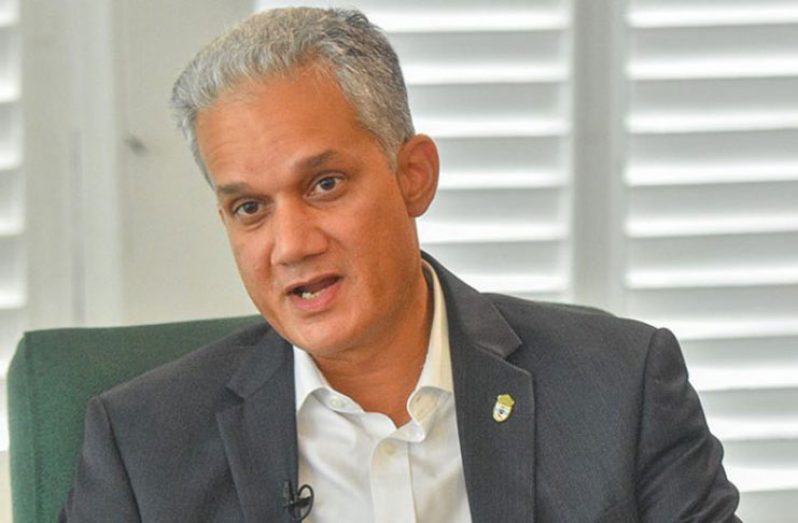THE Ministry of the Presidency has put on record that Dr Jan Mangal, Presidential Adviser on Petroleum, is not authorised to speak on behalf of President David Granger or the Government of Guyana.
The ministry’s terse statement comes hours after Dr Mangal on Wednesday made comments to the media at a forum at the University of Guyana on the oil contract with ExxonMobil. He stated that it is “natural” for contracts to be reviewed with the availability of new information, provided that there is agreement between the parties.
Dr Mangal was speaking on the sidelines of a forum on Guyana’s petroleum sector held at the University of Guyana. He was at the time responding to questions regarding the many concerns raised by civil society and other stakeholders on the 2016 Petroleum Sharing Agreement (PSA) between the Government of the Cooperative Republic of Guyana and Esso Exploration and Production Guyana Limited.
When asked whether the contract should be renegotiated, Dr Mangal said that this is a question the people of Guyana would have to address. “I obviously have a view on it. I am not at a stage yet where I am sharing that view publicly, but it is under discussion,” he said. Noting the shift in focus from the call for the contract’s release to the call for it to be renegotiated, Dr Mangal said the process is just starting, given that the information was released just December 2017. “So it will probably take some time for people to do analyses,” he said.
Dr Mangal said that it is part of his remit to push for transparency. “We don’t want to be in a situation where information is withheld from citizens and then they develop further mistrust of the industry. We need Guyana and Guyanese to be comfortable with what they have and the direction they take…the way to do that is by putting information out there,” he said. “There is a lot of suspicion, but we need to get to [the] point where Guyanese are comfortable,” he stressed.
The petroleum adviser said that he is pushing to have reviews of the PSA done by multinational agencies such as the Inter-American Development Bank and the International Monetary Fund. Following the release of the PSA, a number of stakeholders, including the media, have made their criticisms clear on several aspects of the agreement – from the percentage of royalty to the signature bonus and on issues such as local-content provisions among other issues.
Last year during an interview with the media, Mangal had stressed that there was need for Guyana to enforce legislation, policies and regulations in the emerging oil-and-gas sector that cannot be easily influenced by politicians. Dr Mangal, who has a Doctorate in Offshore Geotechnical Engineering from the University of Oxford and a Bachelor’s Degree in Civil Engineering from the University of Edinburg, said, “You need legislation that can transcend political cycles, that will protect the industry from coming to a standstill when there is a change of government.” He had pointed to Ghana as an example of a change of government, which saw experts in the oil-and-gas sector aligned to the previous government being replaced. “That is not good for the industry. This industry is a long-term industry, it is a 20, 30, 50- year industry – we need regulations and management of the industry that transcends [sic] electoral cycles,” the petroleum expert added.
Mangal said too that since taking up his post as adviser, he has stressed the importance of transparency and reminded that without transparency, the oil-and-gas sector can quickly become unsuccessful. He believes that the independence of the commission is to have a consensus-based approach to management as opposed to decision-making being overly centralised.



.jpg)











